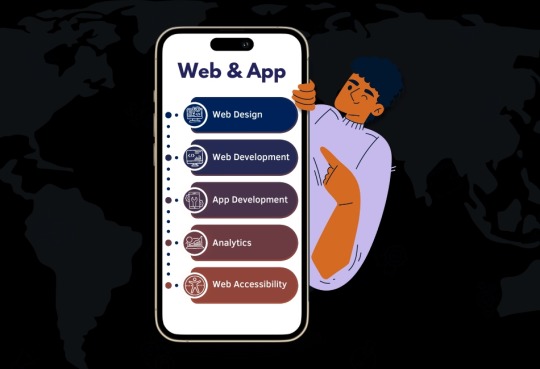#custom Java development
Explore tagged Tumblr posts
Text
Off-the-Shelf vs. Custom Java Software Development: What’s Best for Your Business?
Choosing the right software solution is a critical decision for any business aiming for sustainable growth. This blog highlights the key differences between off-the-shelf software and custom Java software development, offering insights into which option is more aligned with long-term success. While off-the-shelf solutions may seem cost-effective initially, they often come with limitations in scalability, integration, and customization. On the other hand, custom Java software development allows businesses to build tailored applications that meet specific operational needs, adapt easily to market changes, and provide stronger data security. Whether you're a startup or an enterprise, this blog helps you understand how investing in a custom Java solution can give you a competitive advantage and support your digital transformation goals.
#custom Java development#custom Java development services#best custom java software development services in the U.S#Custom Java Development
0 notes
Text
Expert Custom Java Development Services
Expert Custom Java Development Services deliver high-quality, tailored software solutions designed to meet your specific business needs. With a focus on scalability, security, and performance, these services provide robust Java applications that drive efficiency and innovation. Ideal for businesses seeking expert guidance and cutting-edge technology to achieve their digital transformation goals.
0 notes
Text
Java in Action — Top 3 Use Cases

Software development is a dynamic industry that evolves promptly to deliver the best tech to businesses. The introduction of programming languages brought a significant change in the industry. This is because it allowed businesses to bring them online with the help of the internet.
One of the programming languages that was introduced is Java.
In the mid-1990s, Java’s inception took place, and since then, it has been a preferred choice of developers and businesses. Research shows that in 2024, Java ranked as the third most used programming language after Python and JavaScript.
Java is a highly adaptable language, ideal for developing scalable enterprise software and performance-driven mobile applications. This is because it is a flexible, reliable, and secure language.
In this blog, we’ll explore the top 3 Java use cases that highlight the language’s practical power in real-world scenarios. Let’s dive in!
Why Java?
There are certain reasons why Java is preferred to date, apart from its versatility. Let’s discuss them briefly:
1. Object-Oriented Programming (OOP): Java is based on OOP principles, which include concepts such as classes, objects, inheritance, encapsulation, and polymorphism. These principles facilitate the creation of code that is structured, reusable, and maintainable over time.
2. Platform Independence: Java follows the “write once, run anywhere” philosophy, allowing code to be compiled into bytecode. Once compiled into bytecode, Java programs are executed by the Java Virtual Machine (JVM), ensuring platform independence across systems like Windows, Linux, and macOS.
3. Simplicity: Java offers a simpler learning curve compared to C or C++, making it a popular choice for beginners. It avoids complex features like pointers and multiple inheritance, which enhances code readability and maintainability.
4. Robustness: Java’s built-in features, including automatic memory management, structured exception handling, and rigorous type checking, make it a trusted choice for enterprise software development.
5. Security: Java offers enhanced security through its bytecode verification, security manager, and lack of direct pointer access. This reduces the risk of memory or data corruption by malicious code.
6. High Performance: Java achieves high performance through its bytecode, JVM optimizations, and built-in features like garbage collection.
7. Multithreading: Java supports multithreading, allowing multiple tasks to run concurrently within a single program, which improves efficiency and responsiveness.
8. Distributed Computing: Java’s networking capabilities and support for distributed computing make it well-suited for building applications that operate across multiple computers on a network.
9. Dynamic: Java is considered a dynamic language because it supports features like dynamic proxies and reflection, allowing for flexible and adaptable code.
10. Interpreted: Java is an interpreted language, meaning the code is compiled into bytecode, which the JVM interprets at runtime. This enables Java code to run seamlessly across different platforms without modification.
11. Architecture-Neutral: Java’s architecture-neutral design enables it to run unmodified on any hardware and operating system.
Now that you know the features of Java, let’s discuss some of its use cases.
Top 3 Use Cases of Java
Here you will learn the use of Java in enterprise applications, Android applications, big data, and distributed systems. Let’s dive in.
Enterprise Application Development
Java stands as a dominant technology for building scalable, secure enterprise solutions. Whether it is a financial institution or a healthcare provider, Java is the cornerstone of numerous enterprise-critical systems.
Why Enterprises Choose Java?
Java’s power lies in its scalability, dependability, and comprehensive frameworks like Jakarta EE and Spring.
These tools empower developers to build modular, maintainable, and high-performance business applications.
Key Features of Java for Enterprises
Here are some features of Java that benefit enterprises:
JVM-based Scalability
Java’s robust architecture enables exceptional scalability, allowing applications to handle millions of transactions seamlessly. This is crucial for enterprises needing reliability and performance during peak loads.
Spring Boot and Spring Cloud
Spring Boot and Spring Cloud enable the creation of flexible and efficient microservices, promoting modular design and rapid deployment for easy application maintenance.
Comprehensive Security APIs
Java provides essential security APIs and enterprise-grade authentication tools to protect sensitive data and guard against threats, making security a top priority for enterprises.
Seamless Database Integration
JDBC, Hibernate, and JPA enable Java to efficiently connect with databases, allowing enterprises to dynamically manage data and perform complex queries for data-driven applications.
Real-World Examples
Banking Sector: Global banks like HSBC and Citibank use Java to power secure backend operations, fraud detection systems, and online transaction platforms.
Healthcare: Java is used for managing patient data, scheduling, and claims processing in HIPAA-compliant applications.
Retail and ERP: Java helps power large-scale inventory systems, logistics management, and customer service platforms.
Android Application Development
Java has held its ground in Android development despite the rise of Kotlin. Java has been the original language of Android app development, and thus it continues to facilitate numerous mobile applications globally.
Why Java for Android?
Here are some reasons why Java is used for Android:
Vast legacy codebases and rich libraries developed in Java underpin many critical systems.
Android SDK is largely Java-based.
Strong IDE support (e.g., Android Studio).
While Kotlin offers a modern syntax, Java is still the go-to for many developers, especially those new to mobile app development or maintaining existing apps.
Features of Java for Android
Memory Management: Java’s garbage collection helps maintain a smooth performance.
Exception Handling: Enhances error management to prevent application crashes.
Multithreading: It is essential for background tasks such as downloading files or syncing data.
Popular Java-Based Android Apps
Twitter (legacy versions): Java-powered backend and UI rendering.
Spotify: Music streaming giant used Java extensively during its Android development journey.
Big Data and Distributed Systems
Java plays a vital role in big data and distributed computing due to its performance, portability, and multithreading abilities. It acts as a keystone for many tools in the Big Data ecosystem.
Why Java in Big Data?
Many of the widely used big data libraries, like Apache Hadoop, Apache Spark, and Apache Kafka, are either written in Java or utilise Java APIs. This is because Java’s efficient memory handling and thread management make it suitable for processing huge data sets.
Features of Java for Big Data Systems
Concurrency support for handling parallel data streams.
Seamlessly integrates with big data technologies and NoSQL databases like Cassandra, HBase, and MongoDB.
Platform-independent for easy deployment in cloud-native environments.
Real-World Applications
Netflix: Uses Java for its real-time data ingestion and processing pipeline with Kafka and Apache Flink.
LinkedIn: Heavily relies on Java for handling billions of data events daily.
Telecom: Real-time call analysis and network monitoring platforms are often built using Java.
Conclusion
Java is the leading choice in modern development, from enterprise platforms to mobile apps and big data pipelines. Its ability to meet business and developer needs stems from its popularity. Moreover, it offers features like platform independence, security, scalability, and extensive libraries. Thus, whether required by a developer or a business, Java is a smart and future-ready programming language.
If you want to bring this versatile programming language to your business’s tech stack, contact IT companies like BestPeers. They will help you create seamless and functional web applications that are secure and scalable using Java.
0 notes
Text
youtube
Monolithic vs Microservices — What Should You Build
Choosing the wrong architecture too early can cost you years of tech debt! Not every product needs microservices Not every startup should start monolithic Let’s break it down :- ❓When will you need Monolithic architecture? Monolith is focused, fast, and manageable ✅ You’re building an MVP or early-stage product ✅ Your app is simple, with tightly coupled features ✅ You need to launch quickly with a small dev team ✅ Deployment speed matters more than modularity ❓When will you need Microservices? Microservices are scalable, flexible, and complex ✅ You’ve scaled and need feature-specific deployments ✅ Your teams work on different modules in parallel ✅ You want fault isolation and independent scaling ✅ Continuous deployment and DevOps are in place ⚠️ Don’t follow trends. Follow your product’s stage and your team's capability. Get expert guidance tailored to your tech stack and business goals. Call - +91 9073754444 or book a FREE consultation - https://wseinfratech.com/book-a-free-consultation
#distributed systems#microservices#java#monolith#monolith vs microservices#what is microservices#monolithic application#website development#software development#software development company#custom software development#custom website development#java microservices#web development company#aws microservices#api#api gateway#monolithic structure#website architecture#what is api gateway#web development planning#building api#custom software#custom website#Youtube
1 note
·
View note
Text
Application Development Services | Web & Software Solutions – Moironix.
Moironix Offers Custom Application Development Services, Including Web Apps, SaaS Solutions, and Enterprise Software. Scalable and Secure It Solutions.
we specialize in delivering innovative and robust application development services that empower businesses to achieve their goals with cutting-edge technology. Our team of skilled developers, designers, and project managers work together to create custom applications that meet your specific needs and drive your digital transformation.
Application Development, Custom Web Application Development, PHP Application Development Services, Java Web Application Development, Net Application Development
#Application Development#Custom Web Application Development#PHP Application Development Services#Java Web Application Development#Net Application Development
0 notes
Text
https://www.cogtix.com/services/java-development
Custom Java Development Company USA | Cogtix Solutions
Custom Spring Boot development solutions by Cogtix Solutions, a US-based Java development company. We build high-performance, scalable web applications. Get a free quote!
0 notes
Text

Java web frameworks are pivotal for developers building high-performance, scalable web applications. These frameworks simplify the development process by offering reusable components, making it easier to manage complex applications. In 2025, several Java frameworks continue to dominate, offering advanced features for building modern web solutions.
#Java development services#Java development company in USA#enterprise Java solutions#custom Java application development#Java web development#secure Java applications#scalable Java solutions.
0 notes
Text
Affordable Web Design Services: Your Key to Online Success
Affordable Web Design services are like finding a unicorn in the wild, rare and invaluable, but quite surprisingly wallet-friendly. In this digital jungle, having an intriguing and functional website is a thing of necessity. Irrespective of whether you are a startup or an established business, your website is mostly the first point of contact for potential consumers. And everyone knows about…

View On WordPress
#affordable web designing services#css#custom web designing#html#java#outsource website design and development#professional web design services#responsive website design#UX/UI designing services#web design and development#web design services online#web designer#web development agency#web development companies#wordpress
0 notes
Text
Future-Ready Solutions: Why Java Development is Still King

In a tech-driven world where businesses constantly evolve, building reliable, scalable, and secure applications is a top priority. That’s where a Java development software company steps in. Java isn't just another programming language, it’s a foundation that powers everything from banking systems to Android apps and enterprise portals.
0 notes
Text

Reducing Development Costs with Full Stack Developers from India
In today’s competitive market, businesses are constantly seeking ways to reduce development costs without compromising on quality. One effective strategy is to hire full stack developers from India. This approach offers numerous advantages, from cost efficiency to versatile skill sets and favorable time zone differences. In this article, we will explore the benefits of outsourcing development work to India and how it can help your business thrive.
Cost Efficiency
One of the most compelling reasons to hire full stack developers from India is the significant cost savings. Here’s why:
Competitive Rates: Indian developers offer competitive rates that are often much lower than those in Western countries. This affordability is due to the lower cost of living in India, which translates to reduced project rates without sacrificing quality.
Substantial Savings: Businesses can save up to 60% on development costs by outsourcing to India. These savings can be reinvested into other critical areas of the business, fostering growth and innovation.
Versatility and Expertise
Indian developers are known for their versatility and expertise in various technologies and frameworks. Here are some key points to consider:
Multilingual Proficiency: Approximately 90% of Indian developers are proficient in multiple programming languages, enabling them to handle diverse projects and requirements efficiently.
Full Stack Capabilities: Full stack developers from India can manage both front-end and back-end tasks. This means you don’t need to hire separate specialists for different parts of your project, further reducing costs and streamlining the development process.
Technological Mastery: Indian developers are well-versed in the latest technologies and frameworks, ensuring that your project leverages cutting-edge solutions.
Time Zone Advantages
Outsourcing development to India also offers significant time zone benefits, enhancing productivity and project turnaround times:
24/7 Development Cycle: India’s time zone allows for round-the-clock development and support. While your team is off duty, your Indian counterparts can continue working on the project, ensuring continuous progress.
Faster Turnaround: This 24/7 work cycle can reduce development time by up to 30%, allowing you to bring products to market faster and respond quickly to customer needs.
Why Choose India?
India has established itself as a global leader in the IT and software development industry. Here are some reasons why businesses worldwide choose India for their development needs:
Large Talent Pool: India boasts a vast pool of skilled developers, ensuring you have access to top-notch talent for your projects.
Quality and Reliability: Indian developers are known for their commitment to quality and reliability, delivering projects that meet and often exceed client expectations.
Cultural Compatibility: Indian developers are familiar with Western business practices and communication styles, ensuring smooth collaboration and project execution.
Conclusion
Outsourcing development to full stack developers in India is a strategic move that can significantly reduce costs, enhance versatility, and improve project turnaround times. By leveraging the expertise and dedication of Indian developers, businesses can unlock new opportunities for growth and success.
If you’re looking to reduce development costs and enhance the quality of your projects, consider hiring full stack developers from India. Unlock the potential of Indian talent for your next project!
#software development#app development#custom software development#software development company#software developer#full stack developer#full stack java developer course in pune#game development#web app development#android app development#web development#custom app development#ios app development#blockchain development
0 notes
Text

Algoson Software is a leading machine learning and AI Product Development Company based in Mohali, India. Our team of seasoned software and AI developers is dedicated to empowering your business with cutting-edge AI solutions. By leveraging machine learning and data engineering, we transform your data into a strategic asset. Connect with us to elevate your business with Algoson’s advanced AI services. For exceptional software solutions, reach out to us at [email protected].
#leading software development company#customized software product#software development company#custom software development#software development company near me#startup software development#viewJs#reactjs#java#software developers near me#Algoson software services in Switzerland#best software development company websites#website development company#agile development services#certified java developer
0 notes
Text

HTML Website Design with Source Code -techglide" is a comprehensive tutorial series meticulously crafted by Techglide, designed to guide both novice and experienced web designers through the intricacies of crafting captivating HTML-based websites. This invaluable resource offers a hands-on approach, presenting real-world examples and providing access to downloadable source codes, enabling readers to delve deeper into the intricacies of HTML website design. Each module within the series delves into essential aspects such as layout structuring, responsive design principles, semantic markup, and integrating multimedia elements seamlessly. By leveraging the insights and source codes provided in "HTML Website Design with Source Code -techglide," designers and developers can accelerate their proficiency, ensuring the creation of visually appealing, functional, and user-friendly websites that resonate with modern digital audiences.
#web development using Java#javascript for web development company#custom software development companies in india#how to change app icons iphone
0 notes
Text
Application Development Services | Web & Software Solutions – Moironix.
Moironix offers custom application development services, including web apps, SaaS solutions, and enterprise software. Scalable and secure IT solutions.
we specialize in delivering innovative and robust application development services that empower businesses to achieve their goals with cutting-edge technology. Our team of skilled developers, designers, and project managers work together to create custom applications that meet your specific needs and drive your digital transformation.
Application Development, custom web application development, php application development services, java web application development, net application development
#Application Development#custom web application development#php application development services#java web application development#net application development
0 notes
Text

Java Application Development Services
#Java#Java Application Development#Java Development Services#Custom Java Solutions#Java Web and Mobile Development#Expert Java Development#Java Application Solutions#Custom Java Programming#Mobiloitte Java Services#Professional Java Developers#Java Web Development#Java Mobile Development#Java Software Solutions#Robust Java Applications#Java Development Expertise#Java Solutions Provider#Java Programming Services
1 note
·
View note
Text
#android app development services#Android App Development#custom android app development services#custom android app development#java#Kotlin
0 notes
Text
Custom Java Application Development Services
Softura is widely recognized as a leading custom Java development services company due to its expertise and unique approach to technology. We are a CMMI Level 3 company with over 25+ years of industry experience delivering end-to-end Java development services, including mobile, web, and desktop software solutions to several industries and business verticals.
0 notes